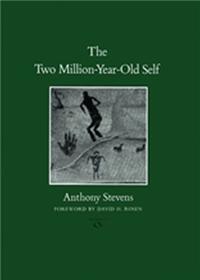Jung (Häftad)
avAnthony Stevens
ISBN: 9780192854582 - UTGIVEN: 200102Though he was a prolific writer and an original thinker of vast erudition, Jung lacked a gift for clear exposition and his ideas are less widely appreciated than they deserve. In this concise introduction, Anthony Stevens explains clearly the basic concepts of Jungian psychology: the collective unco[...]
Archetype (Pocket)
avAnthony Stevens
ISBN: 9780415052207 - UTGIVEN: 1990-02-08A synthesis of Jungian psychology with the discoveries of ethology and socio-biology, this is intended to take the reader a step beyond Ardrey and Morris into a wider science.[...]
Evolutionary Psychiatry (Pocket)
avAnthony Stevens, John Price
ISBN: 9780415219792 - UTGIVEN: 2000-05-11Comprehensive introduction to the science of Darwinian Psychiatry, arguing that psychiatric syptoms are manifestations of ancient adaptive strategies which are no longer approproate but can be understood in an evolutionary way.[...]
Private Myths (Häftad)
avAnthony Stevens
ISBN: 9780674216396 - UTGIVEN: 1997-06Every night we enter a mythic realm, a dark, primordial world of fear and desire. What this world offers, Anthony Stevens suggests, may well be the key to understanding our waking mysteries--ourselves, our society, and our history. A prominent psychiatrist and practicing Jungian analyst, Stevens vie[...]
On Jung (Häftad)
avAnthony Stevens
ISBN: 9780691010489 - UTGIVEN: 2008-07
Here Anthony Stevens examines every stage of Jung's personal and professional development to throw light on his theories of the life cycle, dream symbolism, and the collective unconscious. Jung's life experience made him a profound, stimulating, and immensely influential writer on almost every a[...]Ariadne's Clue: A Guide to the Symbols of Humankind (Häftad)
avAnthony Stevens
ISBN: 9780691086613 - UTGIVEN: 2001-04Symbolism is the most powerful and ancient means of communication available to humankind. For centuries people have expressed their preoccupations and concerns through symbolism in the form of myths, stories, religions, and dreams. The meaning of symbols has long been debated among philosophers, ant[...]
Prophets, Cults and Madness (E-bok)
avAnthony Stevens
ISBN: 9780715646991Cult leaders inspire intense loyalty among their followers, yet they strike outsiders as half mad. Why are there so many of them? And why do they and their ideas proliferate? In this controversial study of the thin divide that separates cult leaders from madness, evolutionary psychiatrists Anthony S[...]
Roots of War and Terror (Häftad)
avAnthony Stevens
ISBN: 9780826476319 - UTGIVEN: 2005-03In 'The Roots of War and Terror', Anthony Stevens provides profound insights into the nature and origins of armed conflict. Combining the concepts of the archetype and the collective unconscious (Jungian) with crucial evidence from the behavioural and biological sciences, Stevens exposes war as an a[...]
Living Archetypes (Inbunden)
avAnthony Stevens
ISBN: 9781138817678 - UTGIVEN: 2015-07Anthony Stevens has devoted a lifetime to modernizing our understanding of the archetypes within us, relating them to conceptual developments in a variety of scientific disciplines, such as the patterns of behaviour of behavioural ecology, the species-specific behavioural systems of Bowlby's attachm[...]
Archetype Revisited (Häftad)
avAnthony Stevens
ISBN: 9781583911099 - UTGIVEN: 200203In this revised, updated edition of his "Archetype: A Natural History of the Self", first published in 1982, Anthony Stevens considers the enormous cultural, social and intellectual changes that have taken place in the past 20 years.[...]
The Two Million-year-old Self (Häftad)
avAnthony Stevens
ISBN: 9781585444953 - UTGIVEN: 200508With the evolution of human consciousness, nature has finally become conscious of itself. It has taken eons of time, this lumbering progress through the minds of reptiles, mammals, and primates, and it is still working out its purpose in the archetypes of the collective unconscious encoded in the mo[...]
Privata myter : om drömmar och drömmande (Inbunden)
avAnthony Stevens
ISBN: 9789179642464 - UTGIVEN: 1997-01-01Varje natt träder vi in i en mystisk värld, ett mörkt urtidsrike fyllt av önskningar, tvivel, fantasi och oro - vi drömmer. Drömmandet är oerhört betydelsefullt, såväl ur personligt som ur antropologiskt perspektiv, och kan vara en nyckel till förståelsen av oss själva, av samhället oc[...]
Jung: A Very Short Introduction (CD-bok)
avAnthony Stevens
ISBN: 9789626342985 - UTGIVEN: 2003-11Anthony Stevens argues that Jung's visionary powers and profound spirituality have helped many to find an alternative set of values to the arid materialism prevailing in Western society. This concise introduction explains clearly the basic concepts of Jungian psychology: the collective unconscious; [...]















